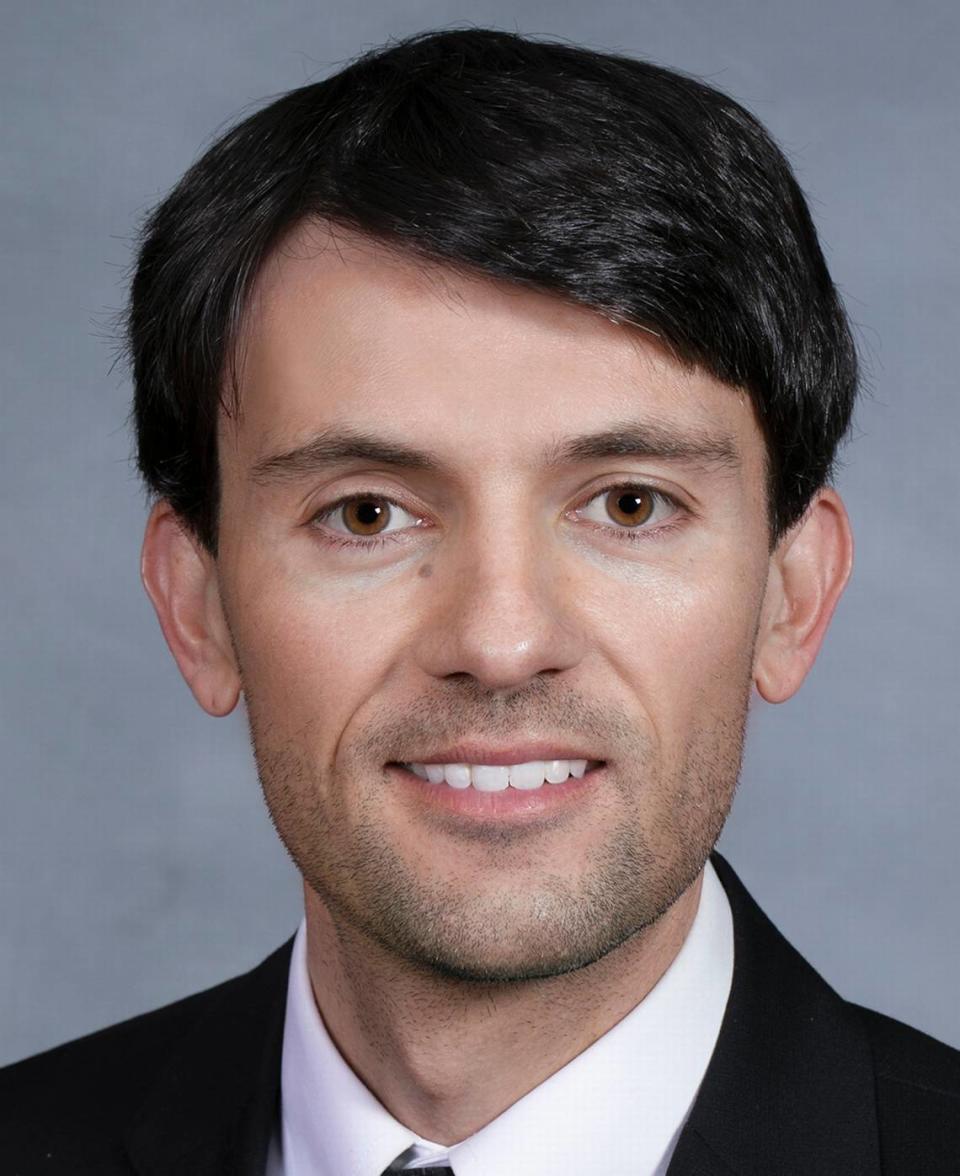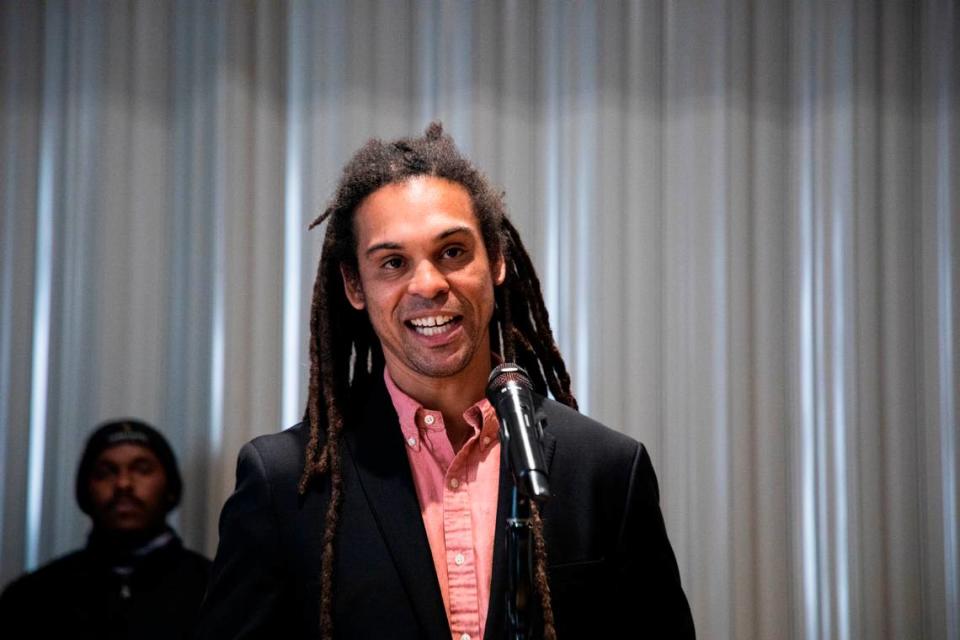NC doesn’t have worker heat protections. Will the next labor commissioner change that?
How and whether North Carolina protects workers from hot weather conditions is an early point of contention between candidates in the 2024 race for labor commissioner.
A migrant farmworker’s death last month in Nash County raised questions about whether the state is doing enough to protect workers from heat. José Alberto Gonzalez Mendoza died picking sweet potatoes less than two weeks after coming to North Carolina from Mexico on an H-2A guest-worker visa. At least two 911 calls reporting the incident mentioned heat as a potential culprit.
The News & Observer reached out to the candidates and to sitting Labor Commissioner Josh Dobson about their stances on heat safety standards. A spokesperson for Dobson, a Republican who is not seeking reelection, told The N&O that any heat standards enacted by the federal Occupational Health and Safety Administration would likely become North Carolina’s law.
OSHA started the rule-making process for a heat standard in October 2021, but any new regulation would take years to finalize. States like California, Minnesota and Oregon have set their own heat standards, but North Carolina has made no such move.
Braxton Winston, a Democrat who has announced his candidacy, says the state should not wait on the federal government because there aren’t enough protections for workers.
Luke Farley, one of two Republicans in the race, says workers are already protected from heat by the general duty clause of the Occupational Safety and Health Act of 1970, the law that established OSHA. The general duty clause requires employers to protect workers against hazards that are not specifically defined elsewhere but that could cause injury or harm. Heat is an example of this, because there is no federal law protecting workers from it explicitly yet it killed 436 workers nationwide between 2011 and 2021.
Farley, a construction lawyer whose practice includes helping clients who have received OSHA citations, said the general duty clause is the right way to address heat in North Carolina workplaces right now. That’s consistent with Dobson’s view.
“The general duty clause is the right way to deal with heat stress. We’ve got the tools on the books to do what we need to do,” Farley said.
For Farley, those steps include educating workers about what heat stroke looks like, helping them acclimate to hot temperatures when they arrive to work outdoors in warm conditions and making sure that water and shade are available.
Rep. Jon Hardister, a Guilford County Republican facing off against Farley in the Republican primary, did not respond to a pair of emails seeking an interview for this story. Many Republicans have endorsed Hardister, including Sen. Lisa Stone Barnes, whose family owns the Nash County farm where the worker died last month.

Farley put distance between himself and Dobson on the topic of a potential federal heat standard and how it could work in North Carolina.
No federal heat protections — yet
“Federal OSHA is currently working on a heat stress standard. If and when this heat stress standard is implemented, the N.C. Department of Labor will most likely adopt this heat stress standard verbatim,” Erin Wilson, a spokeswoman for Dobson’s office, wrote in an email.
Dobson is in his first term as labor commissioner. He has routinely declined interviews on the topic of heat standards in recent months, as he did for this article.
North Carolina is one of 22 states that provides workplace protections under an OSHA-approved plan. That means OSHA provides funding to state workplace health and safety programs, which must, in turn, provide at least as much protection to workers as federal rules.
That’s the provision where Farley sees the potential to protect workers from heat while also protecting business interests.
“As commissioner, I will always be looking for opportunities to come up with a standard that’s at least as effective as what the federal government already has but that’s less burdensome,” Farley said.
An OSHA framework of its potential heat standard released earlier this year said that initial heat protections would kick in when a forecast says the heat index is at least 76 degrees Fahrenheit, while high heat protections would begin when the forecast says the heat index will top 83 degrees Fahrenheit.
At the initial heat trigger, OSHA is considering requiring a 10-minute break every two hours while that break could be 15 minutes every two hours in high heat conditions. In high heat conditions, OSHA is also considering requiring coworkers and employers to observe workers for signs of heat stress.
Farley is particularly concerned about how the federal standard would impact the agricultural and construction sectors, both industries where workers spend months on end working in hot temperatures. The triggers, he argues, might be necessary for someone familiar with working in a cooler Northern state but may not be extreme to someone familiar with North Carolina’s temperatures.
“Maybe we can set the trigger a little higher at a more commonsense place and still protect people as effectively without burdensome regulation,” Farley said.
Democratic candidate’s emphatic support
On the other side of the political aisle, the Democratic candidate for labor commissioner is forthright about establishing rules surrounding extreme heat.
Winston, an at-large Charlotte City Council member, has used his seat on the council since 2017 to speak out in favor of workers’ rights, and is doing the same in his campaign for labor commissioner.
Winston was emphatic in an interview with The N&O about establishing heat stress safety standards in North Carolina, saying that he’s been exposed to hot temperatures in his work as a stagehand working on film and TV projects.
“I think all workers deserve protection from extreme heat, and this would be a priority of my administration to go forward because North Carolina should be a leader when it comes to worker safety (and) worker health, because those are integral for the continuation of the growth of our various industries that we depend on in our different economic sectors,” Winston said.

Winston said North Carolina should enact its own heat standards without waiting for OSHA.
His vision is of an “intentional rulemaking process” for heat safety standards, with input from workers, owners of farms with H-2A workers and other industries.
“When you don’t have standards, not only does it make it difficult for the workers who have to deal with the conditions,” he said. “It makes it difficult for businesses, specifically small businesses … that do want to do right by their workers, but don’t necessarily have standards or rules to turn to. It makes it difficult for them to not only comply, but compete.”
Most recently, privately contracted Charlotte airport workers, who clean plane cabins without air conditioning after flights land, complained about conditions of extreme heat to Winston and the City Council, WFAE reported.
“We’re dealing with it with our airport workers, the folks that clean the planes when an airplane comes in, and they turn off all their systems, and they’re sitting on that hot tarmac,” said Winston.
Winston’s worker-friendly campaign included publicly voicing his support for these workers, and for heat rules to protect workers of private companies such as these.
Winston says there’s a need for a commissioner of labor that talks to stakeholders about “what’s best for the state as a whole, and not necessarily waiting for federal regulations that don’t necessarily consider the conditions that are on the ground here in different parts of North Carolina.”
This story was produced with financial support from the Hartfield Foundation and the 1Earth Fund, in partnership with Journalism Funding Partners, as part of an independent journalism fellowship program. The N&O maintains full editorial control of the work.

